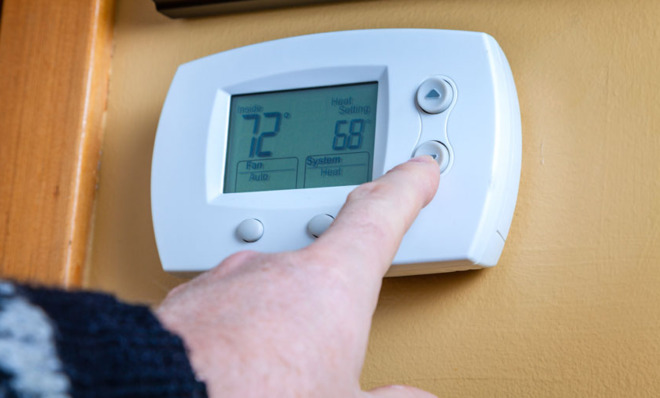Personal finance tips: A warmer, less-expensive winter, and more
Three top pieces of financial advice — from preparing for higher interest rates to picking 401(k) investments

A free daily email with the biggest news stories of the day – and the best features from TheWeek.com
You are now subscribed
Your newsletter sign-up was successful
Preparing for higher interest rates
The balmy climate for bond investors is "about to get chillier," said Jonathan Burton at The Wall Street Journal. The Federal Reserve is signaling that the benchmark federal funds rate, currently near zero, will soon begin to rise and could approach 4 percent by the end of 2017. As a result, bondholders should "adjust their portfolios — and expectations." Experts say investors should keep a close eye on the pace of the rate increases. "Fast and furious will damage bond portfolios more than slow and steady." The good news is that the Fed has hinted any rate hikes "would be incremental," and there’s still money to be made. One option is to park your money in "more stock-like" vehicles — such as high-yield, junk, or corporate bonds — or to try "laddering," which involves holding bonds or bond funds with staggered maturities.
A warmer, less-expensive winter
The Week
Escape your echo chamber. Get the facts behind the news, plus analysis from multiple perspectives.

Sign up for The Week's Free Newsletters
From our morning news briefing to a weekly Good News Newsletter, get the best of The Week delivered directly to your inbox.
From our morning news briefing to a weekly Good News Newsletter, get the best of The Week delivered directly to your inbox.
People across the U.S. can expect lower heating bills in the coming months, said Clifford Krauss at The New York Times. The latest forecasts from the National Oceanic and Atmospheric Administration "show much warmer weather than last winter east of the Rocky Mountains." Roughly half of U.S. households using natural gas can expect a 5 percent drop in their gas bills, the Department of Energy said last week. Northeast residents whose homes rely on heating oil could see a 15 percent drop, while homes that heat with electricity, the norm in the South, can expect to shave 2 percent off bills. Rural and Midwestern Americans who use propane will save the most: 34 percent, thanks to both lower fuel prices and reduced consumption.
Help picking 401(k) investments
More than 50 million workers participate in 401(k)s, said Beth Pinsker at Reuters, and most of them "are not good at making their own investment choices." Just a little guidance can make a big difference: Studies show that people who get even a little investment advice "do better than those who receive no advice." So where can you turn? "Start with your human resources department." You might have access to free financial advice as an add-on benefit. You can also find free help online. Sites like FutureAdvisor and Kivalia offer "detailed advice on allocating funds" and can even generate sample portfolios for your retirement plan. And what if you decide you still want to be hands-off? Your plan probably offers a managed fund that does the selecting for you.
A free daily email with the biggest news stories of the day – and the best features from TheWeek.com
Sergio Hernandez is business editor of The Week's print edition. He has previously worked for The Daily, ProPublica, the Village Voice, and Gawker.
-
 Nordic combined: the Winter Olympics sport that bars women
Nordic combined: the Winter Olympics sport that bars womenIn The Spotlight Female athletes excluded from participation in demanding double-discipline events at Milano-Cortina
-
 Samurai: a ‘blockbuster’ display of Japanese heritage
Samurai: a ‘blockbuster’ display of Japanese heritageThe Week Recommends British Museum show offers a ‘scintillating journey’ through ‘a world of gore, power and artistic beauty’
-
 BMW iX3: a ‘revolution’ for the German car brand
BMW iX3: a ‘revolution’ for the German car brandThe Week Recommends The electric SUV promises a ‘great balance between ride comfort and driving fun’